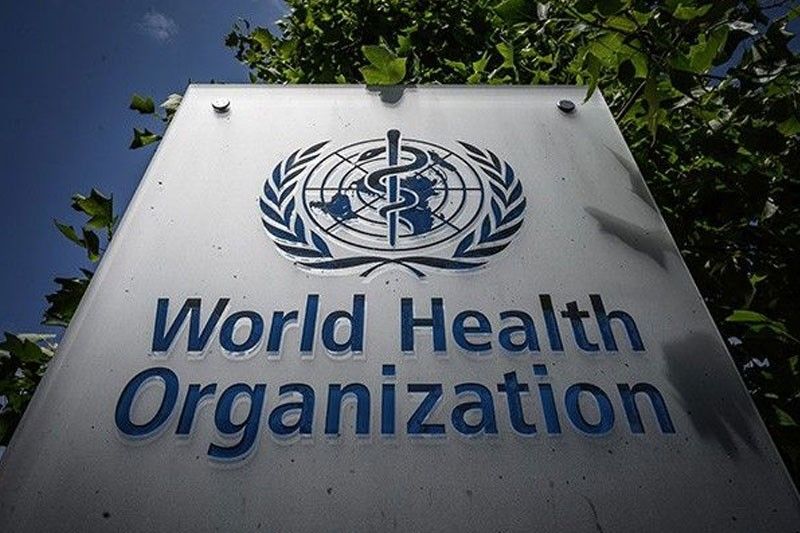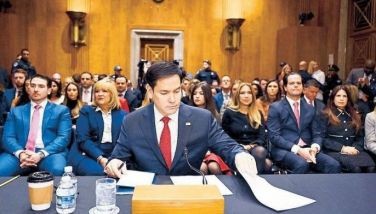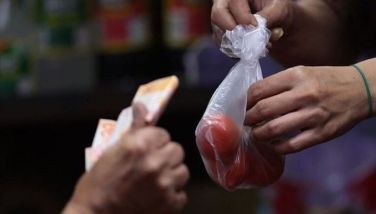WHO calls for strict compliance with priority list

MANILA, Philippines — Amid reports of government officials jumping the vaccination line and even relatives of some health frontliners in a military hospital getting their COVID jabs, the World Health Organization yesterday called for strict compliance with the priority list.
WHO country representative Rabindra Abeyasinghe warned that failure to comply may force the COVAX Facility to consider “other options.”
“To ensure that we continue access of vaccine from COVAX Facility, we need to demonstrate that we can follow this prioritization. Because as you know, there is a huge demand for vaccines all over… in all affected countries, and if we cannot demonstrate that we are following the prioritization, unfortunately, COVAX Facility may have to consider other options where the impact of vaccine rollout will be useful and more practical and will contribute to saving more lives,” Abeyasinghe said in a virtual briefing.
The priority list approved in consultation with the WHO, Abeyasinghe said, must be complied with so that the Philippines can smoothly proceed to the second and third priority groups after the healthcare workers.
Malacañang admitted yesterday some officials seemed to have jumped the line ahead of health frontliners, but said this was done “in good faith” so as to build public confidence in the vaccines.
According to Abeyasinghe, the Philippines is receiving one of the largest consignments of COVAX vaccines and it must ensure that the rollout is aligned with prioritization to maximize the impact.
He stressed that HCWs must be prioritized considering that they are the most at risk and the ones who will take care of those who get infected.
Health Undersecretary Maria Rosario Vergeire echoed the call of Abeyasinghe and urged all those concerned to follow the prioritization framework.
“With this coming AstraZeneca manatili sa framework prioritization,” Vergeire said.
One of the conditions set by the COVAX facility, she said, is the alignment with the objective that vaccines should be given to those who need them most.
As mentioned by Abeyasinghe, Vergeire said the next supply of vaccines coming from COVAX may possibly be jeopardized if the prioritization list is not complied with.
Seniors wait
At Malacañang, an official of the Inter-Agency Task Force for the Management of Emerging Infectious Diseases said senior citizens still need to wait before getting their COVID-19 shots after manufacturers discouraged the inoculation of seniors as Sinovac was recommended only for healthy individuals aged 18- 59.
Cabinet Secretary Karlo Alexei Nograles, IATF co-chair, said the task force is waiting for word from the National Immunization Technical Advisory Group (NITAG) to determine if the government can administer AstraZeneca to senior citizen health workers and the actual seniors next in line.
“We will leave it to the NITAG in terms of what brand of vaccine can be used in the various sectors of the population, this covers also the prioritization.?Right now the direction is not to use Sinovac on senior citizens,” he said.
“With the arrival of the AstraZeneca vaccine, the matter will be decided by the NITAG. There is no age limitations in AstraZeneca vaccine,” Nograles said. “So we will await the advise of the NITAG.”
Reports showed that regulators in Europe are at odds whether the Oxford/AstraZeneca vaccines should be given to the elderly. In the United Kingdom, the vaccine has been approved for use in adults 18 and up, but France, Germany, Sweden and Austria declared that priority should be given to those under the age of 65.
In Italy, AstraZeneca is recommended for those 55 years old and below.
Since the COVID-19 pandemic erupted last year, the government has limited the movement of senior citizens because they are vulnerable to the disease.
With the rollout of the Sinovac vaccine last Monday and the arrival of another batch this week of AstraZeneca, Nograles expressed optimism that a majority of Filipinos will have confidence in the vaccines.
“We acknowledge that we have countrymen who still have reservations about receiving vaccines, but we believe that our kababayan should take their cue from the doctors, nurses and medical personnel who have received the first doses,” Nograles said in a virtual briefing from Malacañang yesterday.
Nograles said the dedication of doctors and nurses in the frontlines in the fight against the COVID-19 is laudable because they also lead the way for their fellow medical personnel who have doubts in getting the vaccines developed by China.
Nograles vowed that the Duterte administration has been doubling efforts to fast-track the delivery of the vaccines. Close to 1.5-million are expected to be procured by the National Task Force against COVID-19 within the month. The rollout for the general population is expected by third quarter of this year.
“The government will mobilize all its resources to secure supplies of these vaccines and to roll them out at the soonest possible time but this is only half the battle; to triumph in the war against COVID-19, every Filipino qualified to receive the vaccine should get vaccinated,” he said.
‘Any vaccine better than nothing’
Even with the possible effect of the B.1.351 or South African variant on the efficacy of AstraZeneca vaccines, the OCTA Research group maintained that Filipinos should get vaccinated with whatever is offered to them.
“Any percentage of protection is better than zero percent,” OCTA fellow and molecular biologist Fr. Nicanor Austriaco said in an interview with The Chiefs on One News/TV 5 on Wednesday night.
“When people ask me, (I tell them that) you should receive whichever vaccine is offered to you because we do not know at this time what will happen in a few weeks with regard to B.1.351,” he added.
In an earlier press briefing, Austriaco warned that the detection of B.1.351 variant in Pasay City could have an impact in the vaccine rollout of the government, citing a study showing that the efficacy of AstraZeneca vaccine against the new strain dramatically decreases from 70 percent to 10 percent.
The paper, which has yet to be published in a peer-reviewed journal, resulted in the South African government to suspend the rollout of the vaccines made in Britain.
According to Austriaco, he raised the concern to emphasize how important it is for the Philippine government to contain the B.1.351 variant.
But this does not mean that Filipinos should reject AstraZeneca, he said, citing the plan to develop booster shots to improve its efficacy against different variants.
During the same program, OCTA fellow Guido David also reiterated the need to strengthen biosurveillance activities to determine if a new variant is spreading in Metro Manila. – Christina Mendez, Janvic Mateo
- Latest
- Trending





























